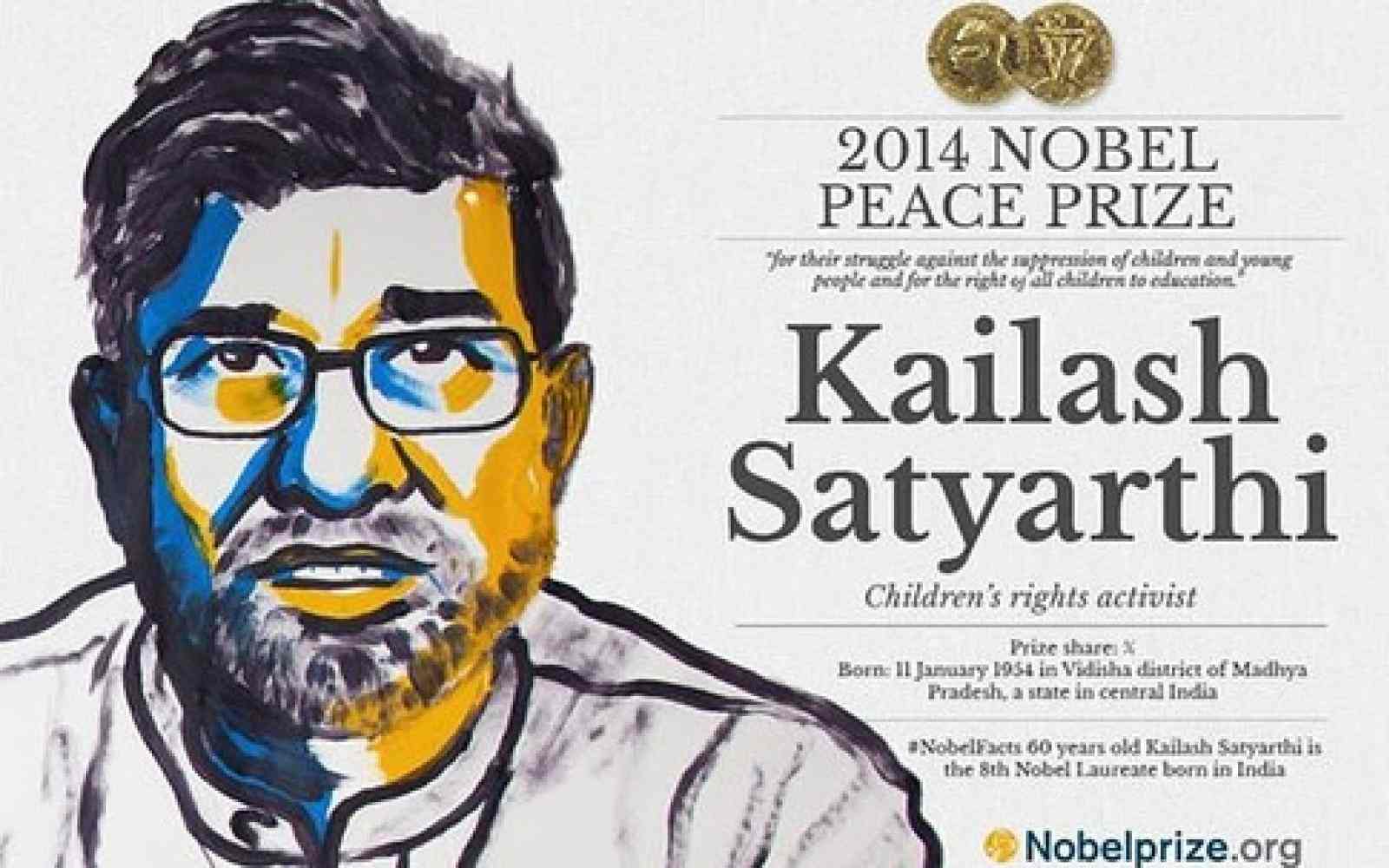Child Labor Movement Leader and Ashoka Fellow Kailash Satyarthi shares the Nobel Peace Prize 2014 with Malala Yousafzai

Ashoka is honored to announce the Nobel Peace Prize was awarded Friday, October 10, 2014 to Ashoka fellow Kailash Satyarthi from India and Pakistan’s Malala Yousafzai a passionate advocate for education. The Norwegian Nobel Committee cited the two "for their struggle against the suppression of young people and for the right of all children to an education".
Kailash Satyarthi is the renowned leader in the global movement against child labor. He was elected to the Ashoka Fellowship in 1993. He is the second member of the Ashoka community to receive this; Muhammad Yunus, a member of the Ashoka Global Academy was awarded the Nobel for his work in 2006 which transformed banking by enabling financial inclusion of the poor through microfinance. These social entrepreneurs demonstrate the power of social entrepreneurship to identify systems changing solutions to some of the world’s most pressing problems. Ashoka was founded by Bill Drayton in 1981 and is the world’s largest network of social entrepreneurs with over 3000 fellows working in more than 90 countries supporting an “Everyone a Changemaker World .”
The 2014 prize has connections to the work of two Ashoka Fellows. Before becoming a global advocate for equal access to education for girls, Malala Yousafzai worked closely at Ashoka Fellow Mohamad Ali's school, Khpal Kor in Swat, Pakistan. This school provided Malala and other girls like her access to education where the opportunities for education were extremely limited. Malala was speaker of the UNICEF sponsored "District Child Assembly" that Mohamad started to give children a voice, and allowed Malala the opportunity to hone her changemaking skills at an early age. The author of a memoir “ I am Malala” she is a passionate advocate for peace and education for girls.
Kailash Satyarthi is a renowned leader in the global movement against child labor. Today, in addition to his trademark organization Rugmark (now known as GoodWeave International), Kailash heads the Global March Against Child Labor, a conglomeration of 2000 social-purpose organizations and trade unions in 140 countries.
"This award is dedicated to the most marginalized child trapped in slavery somewhere in the world. Won’t rest till child labour is eliminated" - Kailash Satyarthi
In 1983, Kailash Satyarthi founded the grassroots movement Bachpan Bachao Andolan - Save the Childhood Movement and Rugmark - a rug trademarking organization that guaranteed fair practices and no child labor. These movements have rescued over 80,000 children from the scourge of bondage, trafficking and exploitative labor in the last three decades. By using consumer behavior to influence corporate behavior, Kailash has initiated and perpetuated ethical business practices. In the last decade, his innovative strategy of social labeling and activism has led to a 70% decrease in child labor in South Asia and released 1 million bonded laborers. In addition, He successfully spearheaded a countrywide movement to make education a Constitutional Provision, which subsequently paved way for the Right of children for free, and compulsory education in 2009 in India.
Kailash Satyarthi is the architect and leader of two of the largest civil society movements: the Global March Against Child Labor (GMACL), a worldwide coalition of NGOs, Teachers' Union and Trade Unions, and the Global Campaign for Education. The GMACL campaign was instrumental in the International Labor Organisation (ILO) decision to change its outdated policy on child labor. Towards this, he led the Manila wave consisting of children, heads of state and stakeholders from over 103 countries to ILO headquarters in Geneva to demand for a stronger international law against child labor, slavery, and prostitution. This campaign instigated the fastest convention ratification in ILO history, setting the standard for unacceptable forms of child labor, minimum age of employment and requirements for hazardous work.
Building on that campaign, Kailash is creating a new culture of coalition, bringing together unusual partners and stakeholders and building a collective voice. With the cooperation of NGOs, unions, religious organisations, and more importantly, rescued child laborers, Kailash helped create a global demand for an end to child labor. Using his coalition strategy, Kailash is now working on bringing child labor and slavery into the post-2015 development agenda for the Millenium Development Goals (MDGs).